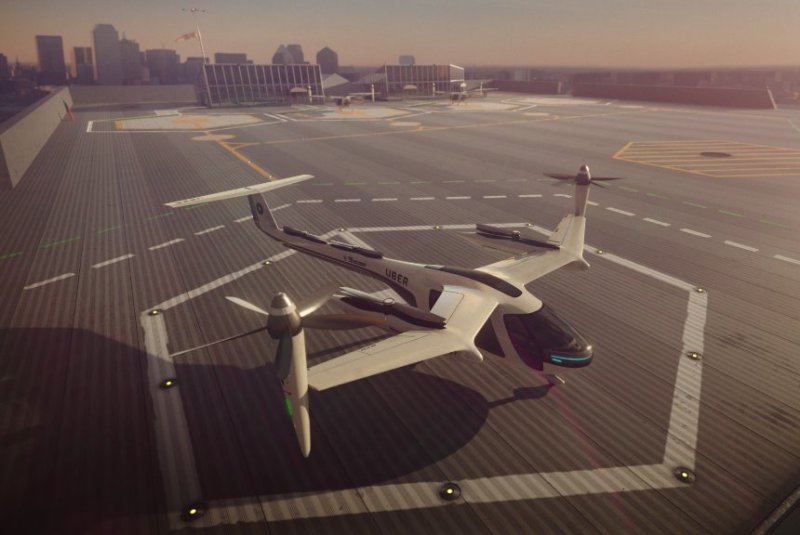Ride-share company Uber announced at a tech conference Wednesday that it plans to partner with NASA to create a network for self-flying vehicles by 2020. Image courtesy Uber/Twitter
Nov. 8 (UPI) -- Ride-share giant Uber said Wednesday it's helping to plan an air traffic control network for self-flying vehicles, and that the system could be operational in just three years.
The company said it signed a contract with NASA to develop the software to manage the self-flying taxis, Uber Chief Product Officer Jeff Holden announced at the Web Summit conference Wednesday. He added that Los Angeles and Dallas will be the first two markets to see the new transportation system -- and said they're looking to make it happen by 2020.
"Technology will allow L.A. residents to literally fly over the city's historically bad traffic, giving them time back to use in far more productive ways," Holden told USA TODAY. "At scale, we expect UberAir will perform tens of thousands of flights each day across the city."
Holden said the company hopes to make great use of the new technology by the time Los Angeles' Summer Olympic Games arrive in 2028 -- and that NASA will work on an air traffic control grid to monitor the flying taxis and help them avoid mid-air collisions.
"UberAir will be performing far more flights over cities on a daily basis than has ever been done before," Holden said. "Doing this safely and efficiently is going to require a foundational change in airspace management technologies."
Uber noted it does not plan to make the cars themselves, but will instead partner with multiple manufacturers for prototype vertical takeoff and lander vehicles.
The company also announced that it signed a deal with Sandstone Properties -- which has 20 sites across the greater Los Angeles area -- to build "skyports" to serve as takeoff and drop-off points for flying taxis.
Uber is expected to face many challenges in developing and spreading the self-flying vehicle, including approval from the U.S. Federal Aviation Administration.
"Flying autonomous vehicle technology is developing rapidly, but it's likely to be more disruptive than transformational," analysts Kimberly Harris-Ferrante and Michael Ramsey said.
"High costs, safety concerns and regulatory burdens are likely to limit the use of this overhyped technology."















